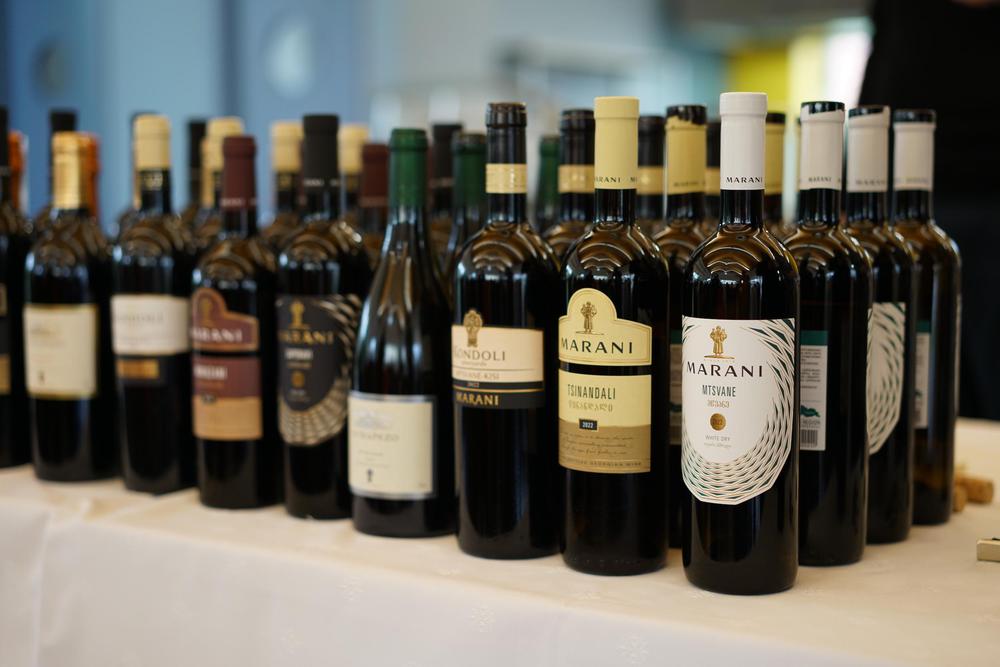The Resilience of Georgian Wine Amidst Climate Challenges
Georgia, often hailed as the birthplace of wine, is currently facing significant challenges due to climate change. Despite these adversities, including severe weather conditions and the impact of global and regional political tensions, the Georgian wine industry has shown remarkable resilience. The industry, which contributes nearly 9% to Georgia's exports, is adapting to these changes with innovative strategies and governmental support. This article delves into the various adaptations and responses of the Georgian wine industry to the pressing issue of climate change.
The Impact of Climate Change on Georgian Viticulture
Georgia's unique position between Europe and Asia has blessed it with a variety of microclimates that have traditionally favored wine production. However, recent years have seen drastic changes in these conditions. The soaring summer temperatures and prolonged droughts have severely impacted this year's harvest. This climatic shift is not just a local phenomenon but a global challenge, as evidenced by the increasing number of hot days and extreme weather events like hailstorms, which have caused substantial damage to vineyards.
Experts and local farmers alike are witnessing the direct effects of these changes. Vineyards are drying up, prompting an urgent need for special irrigation systems. The situation is particularly dire in eastern Georgia, the major wine-growing area, which is experiencing increased temperatures and reduced precipitation, leading to soil degradation. This change is alarming, considering the region's significant contribution to the country's wine production, which predominantly focuses on semi-sweet varieties, highly popular in the US market.
Adapting to New Realities: Georgian Wine in the Face of Climate Change
To combat these challenges, Georgian winemakers and agriculturists are employing various strategies. Government and private initiatives are focusing on repairing and modernizing irrigation systems, including the introduction of drip irrigation. These efforts aim to reduce the risk of land degradation and ensure the sustainability of viticulture. Additionally, climate change adaptations are being bolstered by detailed research and developmental studies supported by organizations such as the United Nations Environmental Program, USAID, and the EU.
One innovative approach has been the revival of a Soviet-era cloud seeding program, operated by the Ministry of Defence. This program uses rockets to inject silver iodide into the atmosphere, transforming potential hail into rain, thereby protecting the vineyards. However, the effectiveness of this method has been a subject of debate among farmers.
Diversification and Government Support: A Dual Strategy
The Georgian government and farmers are not solely relying on technological solutions. Diversification has become a key strategy, with some farmers, like Solomon Nersezashvili, turning to alternative crops such as hazelnuts, which are hardier and more profitable. This shift is partially a response to the increasing unpredictability of grape yields due to extreme weather events.
Moreover, the government is actively supporting grape farmers through subsidies and emergency measures, such as purchasing damaged grapes and offering financial assistance to those affected by adverse weather. These interventions, while helpful, have sparked discussions about their long-term sustainability and the need for more comprehensive insurance schemes that cover a wider range of damages and grape varieties.
The Road Ahead: Challenges and Opportunities
Despite these substantial challenges, the Georgian wine industry's resilience remains evident. The industry has adapted to various shocks over the years, including political embargoes and market shifts. This adaptability is rooted in the deep cultural and historical significance of winemaking in Georgia, which continues to drive the industry forward.
As the global community strives to limit temperature rise and address climate impacts, industries like Georgian wine are at the forefront of adapting to and mitigating these changes. The industry's response serves as a microcosm of the broader challenges and potential strategies in the face of global climate change. While the road ahead is fraught with uncertainties, the combination of technological innovation, governmental support, and the indomitable spirit of the Georgian people suggests a resilient future for this ancient wine-producing region.
Conclusion: Georgian Wine's Journey Through Climate Adaptation
The Georgian wine industry's journey through climate change adaptation is a testament to resilience and innovation. Faced with unprecedented climatic shifts and political challenges, the industry is evolving, employing a mix of traditional wisdom and modern technology. As a key player in the country's economy and a symbol of its rich cultural heritage, Georgian wine's adaptation strategies offer valuable insights into the broader challenges of climate change. For travelers and wine enthusiasts alike, Georgia's wine regions, with their evolving landscapes and enduring spirit, remain a compelling destination, showcasing the intricate balance between tradition and adaptation.

 Georgian Wine-Based Products
Georgian Wine-Based Products
 Georgian Biodynamic Winemaking
Georgian Biodynamic Winemaking
 Georgian Winemaking on Mars?
Georgian Winemaking on Mars?




